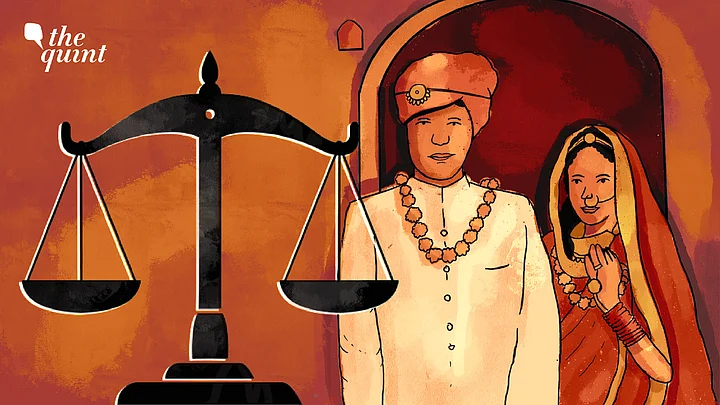“A wife makes the home a comfortable environment and her contribution towards the family, and certainly it is not a valueless job, but it is a job doing for 24 hours without holidays, which cannot be less equated with that of the job of an earning husband who works only for 8 hours.”
These were the words of the Madras High Court, while ruling that the wife, as a homemaker, is entitled to an equal share in the assets bought using her husband’s money, since she had indirectly contributed to its purchase.
This judgment, which Justice Krishnan Ramasamy delivered on 21 June, is being heralded by experts as a “welcome step.”
Why, though? What does this case change? And what was the case about?
The Case
In 1982, Sai* left for Saudi Arabia after he got a lucrative job at a steel company there. The High Court judgment notes that after he took up the job, his wealth went up “to huge proportions.”
His wife, Vidya*, however stayed back in India and took care of their children. While he was away, she bought several assets, on his behalf, using the money he earned.
In 2002, however, dispute crept in. Sai alleged that Vidya was trying to take over the properties bought with his money. He also accused her of having an affair with another man and wanting to take control of the properties with him.
He, thus, filed a suit claiming ownership of the property. The wife, on her own part, denied these claims. The judgment notes that according to her, the husband wanted to sell the properties and use the money to fund a business. When she refused (because according to her she had equal rights over the property), conflict came into the picture.
What the High Court Said
The Madras High Court, while overturning the trial court judgment in the case, sided with the wife. The court concluded that although the wife did not make direct financial contributions, she did free her husband of responsibilities revolving around their family, so that he could go ahead and earn money for the properties in question.
“In generality of marriages, the wife bears and rears children and minds the home. She thereby frees her husband for his economic activities. Since it is her performance of her function which enables the husband to perform his, she is in justice, entitled to share in its fruits.” the court said.
“The said savings were done because of the 24 hours efforts put by the 1st defendant/wife for the family, whereby she had made her husband to save money without contributing much towards the house maid etc., and for payment of money towards other jobs,” the court added.
This, Justice Ramasamy, ruled, translated to the wife having equal rights over the property:
"When the husband and wife are treated as two wheels of a family cart, then the contribution made either by the husband by earning or the wife by serving and looking after the family and children, would be for the welfare of the family and both are entitled equally to whatever they have earned by their joint effort," the court said.
"The property may be purchased either in the name of husband or wife alone, but nevertheless, it is purchased with the monies saved by their joint efforts," the court added.
'Clarifies Grey Areas in The Law': Why This is Significant
“While courts previously have recognised the contribution of homemakers to the family, there was no specific ruling equating their contribution to rights over property. This judgment will serve as an excellent precedent,” Supreme Court lawyer Tanvi Dubey noted.
Experts also pointed out that while every case after this will still have to be decided on its own set of facts and circumstances, this judgment will help in clarifying certain grey areas that exist in the law.
“The law has a grey area when it comes to the rights of homemakers in property disputes when they do not officially, jointly own certain properties along with their husbands. Although each case after this will still have to be decided on its specific facts and circumstances, what the Madras High Court judgment does is that it clarifies this grey area,” Mrunalini Deshmukh, a Bombay-based divorce lawyer, told The Quint.
“This judgment is a welcome step because it recognises the contribution of the homemaker to her family. It will now open the floodgates for all women who might not have made direct monetary contributions to the household, but have kept it running with their round-the-clock labour,” Deshmukh added.
*Names changed.
(At The Quint, we question everything. Play an active role in shaping our journalism by becoming a member today.)
